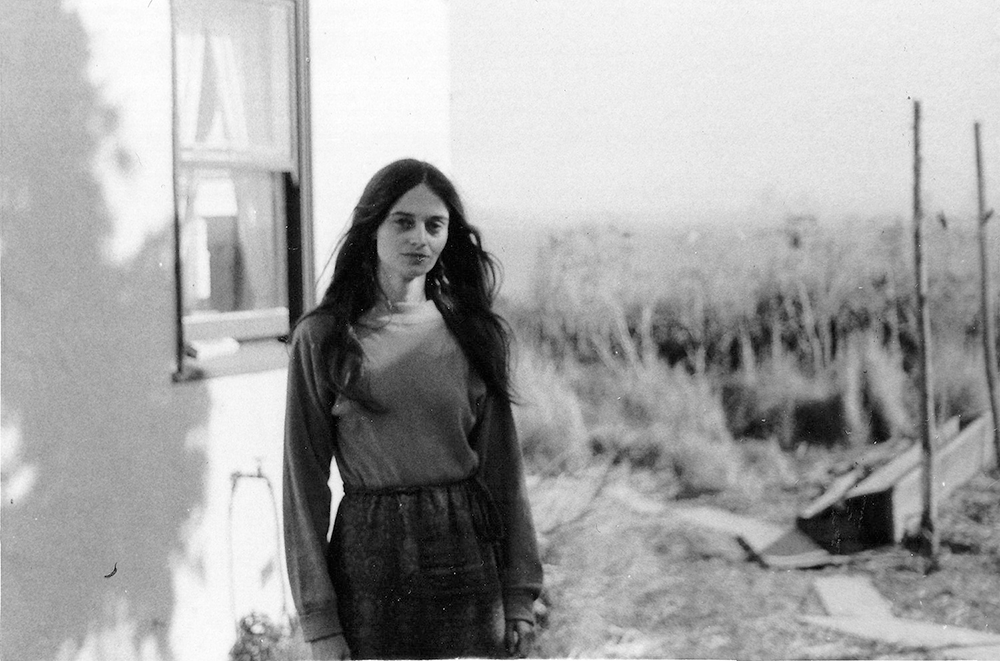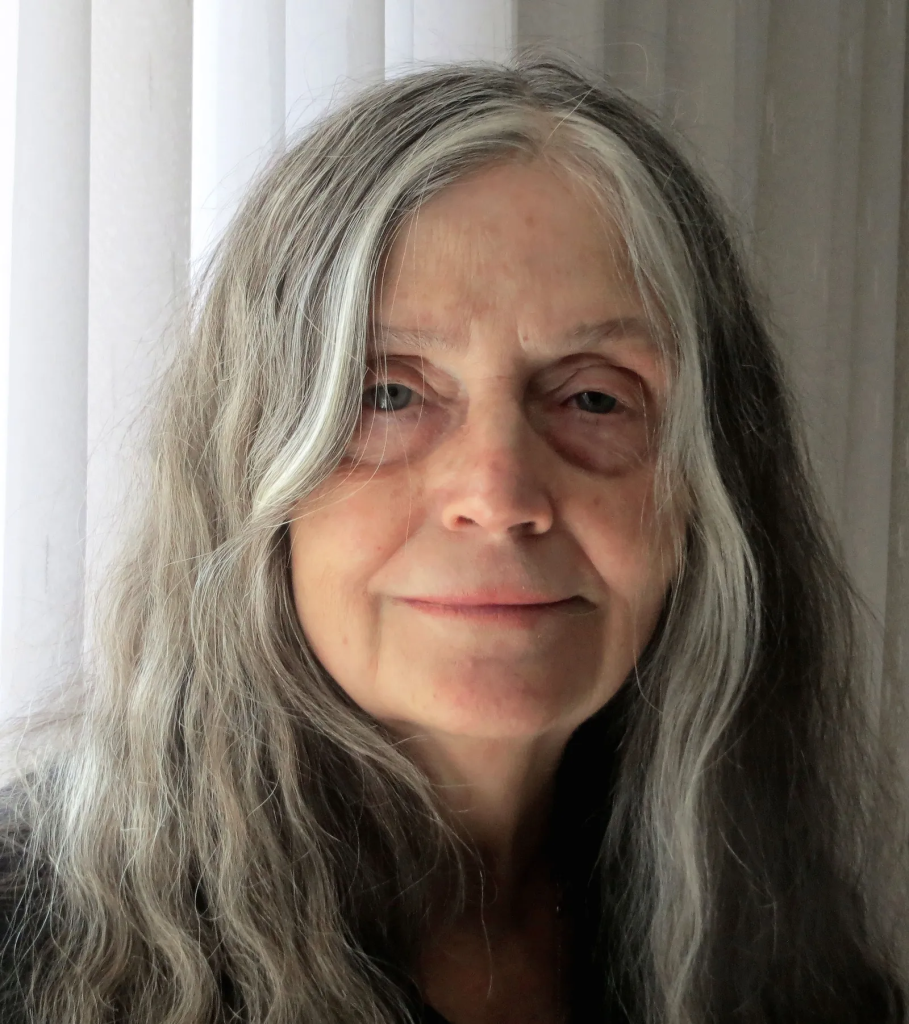This has been a busy time for fans of Alice Notley’s work, with three books appearing just in the past year or so, and many interviews, reviews, articles, and poems popping up all over the place.
In the new issue of the Yale Review, the critic Tausif Noor offers a compelling look at Alice Notley’s recent work, especially her massive 2023 volume The Speak Angel Series and the just-published Being Reflected Upon (which is subtitled a memoir of 17 years, 2000-2017). Using as a throughline Notley’s enduring devotion to a “poetics of disobedience,” Noor provides a useful introduction to the sweep and evolution of Notley’s long and varied career, from the striking poems of the late 1960s and early 1970s gathered in the recently-published Early Works (edited by Nick Sturm) through her beloved feminist epic The Descent of Alette to her two most recent collections.
As its epigraph shows, Notley’s newest book, Being Reflected Upon, borrows its unusual title from one of her guiding lights, Frank O’Hara. Notley took the phrase from an intriguing passage in O’Hara’s poem “Essay on Style” about how we, and our minds, interact with the world: “I was reflecting the other night meaning / I was being reflected upon that Sheridan Square / is remarkably beautiful…”
Being Reflected Upon is a “melancholic, often wistful collection,” Noor writes. This “memoir-in-verse” is “bookended by the death of Notley’s second husband, the British poet Douglas Oliver, in 2000 and the end of Notley’s treatment for her breast cancer in 2017.” Noor observes that “together these recent publications underscore the poet’s instructive philosophy of the self as a set of constantly evolving forms, forms that are unearthed only through the evisceration of convention.”
In other Notley news, a major interview with Notley, conducted by Hannah Zeavin, appeared in the April issue of the Paris Review, as part of their famed “Art of Poetry” series.
Here is a taste of the interview, from its opening question:
“INTERVIEWER
Where do you think great poems come from? There’s an idea in psychoanalysis that one thing artists are doing in their work is sublimating.
ALICE NOTLEY
That’s ridiculous. I’ve never sublimated. I’m never sublimating. No, I think the real answer has to do with suffering, and how you perceive things after suffering. You might just freeze, but if you don’t, other worlds open to you. I started hearing the dead, for example. And I felt that, because I had some new knowledge, I had something to give people—that I had things to say that would make them feel better.”
In conjunction with the interview, The Paris Review also published a piece about Notley’s work called “On Being Warlike” by poet Joyelle McSweeney. In the essay, McSweeney praises Notley for unfurling “a spangled aegis over the field of battle that is human existence over the past five decades on this planet,” only to quickly point out that such an image “contradicts the anti-masculinist, anti-patriarchal, anti-militarist thrust of Notley’s poetry and her statements about her work.” But, McSweeney goes on, “the truth is, this refulgent contradiction—Notley’s staunch anti-militarism versus what for lack of a better word might be called her ‘warlikeness’—her indefatigability, the relentless resourcefulness of her dismantling of the masculinist structures that support war, exploitation, destruction, and harm—might be the signature of her greatness itself, the reaction fueling its flight.”
Like Noor, McSweeney calls attention to “disobedience” as the powerful force at the center of Notley’s thought and writing — “an action of mind, ethics, and art,” disobedience is Notley’s “signature gesture,” in which “total refusal becomes paradoxically foundational.” At the end of her haunting essay, McSweeney writes:
“The ultimate figure of Disobedience, of alternative, gold-blossoming colonnades, unfurling a dream-space away from the masculinist militarism of the waking world, is the reader. Notley assigns to the reader her Disobedience while also distributing her infinitude, her stamina, her resourcefulness, her munificence, to the mind of the reader herself. Under the aegis of Disobedience, we oar away from war, by night, through dream, then into light.”
But wait — there’s more: the Paris Review also posted the piece “Alice Notley’s Prophecies” by David Schurman Wallace; another recent Notley interview, with Deanna Fong, appears in The Capilano Review; an excerpt of Janique Vigier’s interview with Notley appeared in Harpers; Heather Treseler reviewed Being Reflected Upon for Los Angeles Review of Books; and Andrea Brady reviewed Early Works and The Speak Angel Series for London Review of Books back in September
And then there’s Notley’s poem “Jim Carroll’s Ass,” which appears in the June 2024 issue of the Baffler (“Nothing seems real yet I’m willing / to play ‘the real’ game for ones I love / … I like to remember Jim Carroll / mooning Ted at the entrance to Julian’s Billiard Academy / the first time I met him he was showing off for me / and had a pearly ass this is cerebrality // but not within the time frame of my research”).
I’m sure there’s more where that came from, but for now, hope you enjoy these recent Notley riches!




Thank you, Andrew! This is terrific. I agree with Alice about suffering, and I agree with Frank about the beauty of Sheridan Square, and how he was being reflected upon. I bet there is still a reflection of Frank hovering around Sheridan Square (which was just a few blocks from my childhood home from age 3 on, and thus a kind of land of dreams).
Sublimation has always seemed to me to be a creepy, uptight reason for making art—I don’t know quite how my father, a pretty devout Freudian, aligned himself with that idea, because it doesn’t seem Kennethian. I like Alice’s generosity—it’s how I see things, too—that I can help people feel better. I started writing my memoir when I was grieving my dad profoundly, it just appeared as something I had to do, no question about it. Ever since my mom died, way too young at age 51, she’s been a kind of muse for me—I start a painting and I start having a conversation with her. Blake had the same kind of relationship through his work with his brother Robert, who died terribly young.
So thank you again for the inspiration, and thank you, Alice—
XXOO,
Katherine
Thanks so much for your response, Katherine. Very interesting to hear about the role of suffering in your own creative life vs. sublimation (which you’re right, doesn’t seem very Kennethian!).